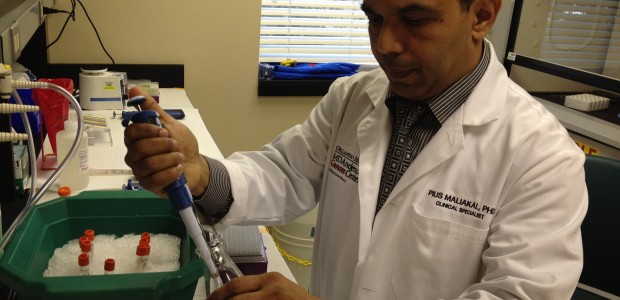All around the United States, researchers at the top cancer research centers are hard at work developing new ways to treat a myriad of different cancers. Thanks to the research done at these facilities; we now have the ability to diagnose and treat various forms of cancer which had alluded us not long ago.
This ongoing cancer research is imperative to one day developing a comprehensive cure, but the road ahead is long and very difficult. Despite the hardships they face, these researchers continue to make new breakthroughs which have improved our understanding of how these diseases work. So without any further ado, here are a few of the latest updates from some of the top cancer research centers in the United States!
Dana-Farber Cancer Institute
During a recent clinical study, researchers at the Dana-Farber Cancer Institute utilized an interesting technique in order to prioritize the mutation of genes in tumor cells. Utilizing viral proteins, the researchers could find out which of the numerous mutated genes are actually involved in the cancer development and which are just bystanders during this phase.
This technique should prove quite useful in determining which of these mutated genes would be worth studying further, as well as helping pharmaceutical firms in the development of new cancer drugs with higher success rates.
MD Anderson Cancer Center
Working with the Dana-Farber Cancer Institute, researchers from the MD Anderson Cancer Center have been studying genomic deletions and the collateral damage that they cause to neighboring genes. Originally, the research had begun by looking at how genomic deletions can cause cancer, since it eliminates the tumor-suppressing genes.
Now however, researchers have discovered that the collateral deletion of genes, which happens to be crucial for tumor metabolism, actually gives them the opportunity to then terminate malignant (cancerous) cells. They are able to kill these malignant cells by inhibiting another “redundant” gene which is also responsible for tumor metabolism. According to the president of MD Anderson, Ronald DePinho, M.D., this new cancer research will provide the basis for a whole new approach to identifying potential targets and developing new targeted treatments.
Fox Chase Cancer Center
Medical researchers at Fox Chase Cancer Center recently discovered new details about how initial defects in the components responsible for creating new proteins can cause cancer in the blood and other areas. This new information can help explain why various mutations present in one class of proteins can lead to the development of cancer.
This new research will help in the development of new targeted treatments that can specifically address these issues, for instance finding a way to inhibit the pathway which gets activated by these mutations. So far, the research has been focused on ribosomal proteins. During previous studies, mutations present in the ribosomal proteins were linked to cancers like lymphoma, leukemia, and myelodysplastic syndromes (MDS).
St. Jude Children’s Research Hospital
Not long ago, St. Jude Children’s Research Hospital decided to embark on an ambitious mission called the Pediatric Cancer Genome Project. In collaboration with the Washington University School of Medicine in St. Louis, they plan on identifying the numerous genetic changes which cause some of the world’s deadliest childhood cancers.
In fact, researchers from St. Jude’s were the first to associate 41 genes to medulloblastoma (this is a common form of brain tumor which tends to develop in people under the age of 20). Just a couple months ago, they uncovered a few missteps while studying the genetic roots of the common malignant childhood brain tumor. This research has provided some unexpected insights for medical researchers.
Not only has it helped to identify some new targets for future drugs, but it is also pointing scientists in new directions for uncovering how tumors really work. According to the St. Jude Comprehensive Cancer Center director, Richard Gilbertson, M.D., Ph. D., they have already started development of some new cancer drugs which will be aimed at the targets being identified by this breakthrough research.
